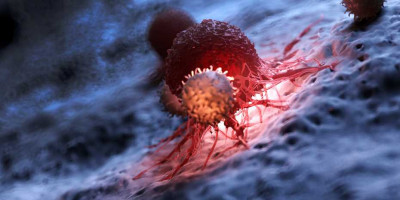
Immune checkpoint inhibitors can boost the immune system’s response to tumour cells, but the medications tend to be ineffective against certain cancers, especially colorectal and pancreatic cancers.
A new clinical trial led by investigators at Massachusetts General Hospital (MGH) indicates that combining radiation with immune checkpoint inhibitors may be an effective strategy to combat these resistant cancers.
Preclinical studies have shown that low-dose radiation can create a “tumour vaccine” environment that triggers an immune response when stimulated with the immune checkpoint inhibitors nivolumab and ipilimumab—which have different targets—in resistant cancers.
As reported in Nature Cancer, researchers tested this strategy in a single-arm phase II trial of 40 patients with colorectal cancer and 25 patients with pancreatic cancer.
In patients who received the planned treatment of radiation + nivolumab + ipilimumab, 37% of patients with colorectal cancer and 29% of patients with pancreatic cancer experienced responses to the therapy (with complete or partial responses or stable disease that did not progress).
“This is an impressive clinical result given that historically, these cancers respond in the low single-digit percentage range,” says senior author David T. Ting, MD, associate clinical director for innovation at the MGH Cancer Center and an associate professor of medicine at Harvard Medical School. He added that new information indicates that improved timing of the sequencing of radiation therapy with immunotherapy may enhance efficacy that merits further investigation.
The investigators noted that analyses of cancer biopsies taken before treatment revealed that tumours that responded to the triple therapy tended to have higher expression of certain viral sequences that are found normally in the human genome.
These sequences belong to a retrovirus called HERV-K.
“HERV-K may be a potential marker of response to this immunotherapy regimen, which can be used for future studies to tailor treatments to individual patients,” says Ting.
Studies that look into the potential role of these viral sequences in cancer biology are also warranted.
Source: Massachusetts General Hospital